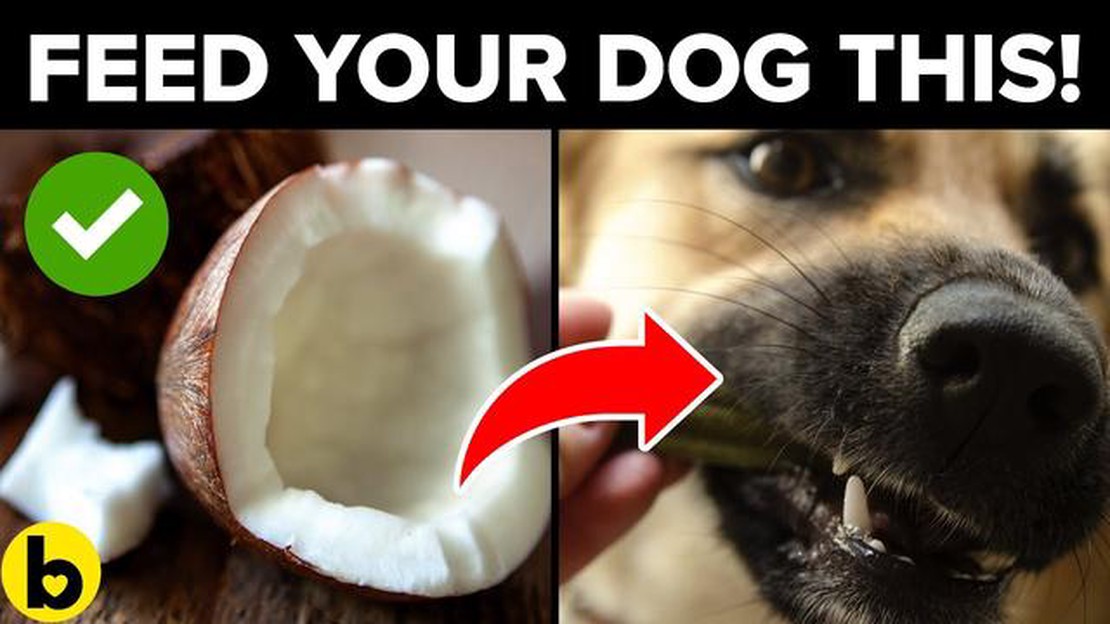When is a Female Dog Ready to Breed After She Starts Bleeding - Expert Guide
When Is A Female Dog Ready To Breed After She Starts Bleeding Many dog owners wonder when their female dog is ready to breed after she starts …
Read Article
Malt is a common ingredient found in many food and beverage products, including beer and malted milk. But can dogs have malt? If you’re a dog owner, it’s important to know the answer to this question to ensure the health and well-being of your furry friend.
First and foremost, it’s crucial to understand that malt is generally safe for dogs to consume in moderation. However, there are some important considerations to keep in mind.
Malt itself is made from barley, which contains gluten. Just like with humans, some dogs may have gluten intolerances or allergies, making it important to avoid feeding them foods that contain malt or other gluten-rich products. It’s always a good idea to consult with your veterinarian before introducing any new foods into your dog’s diet.
It’s also worth noting that malt-based products are often high in sugar, which can lead to weight gain, dental issues, and other health problems in dogs. Therefore, it’s important to only give your dog small amounts of malt as an occasional treat, and to avoid foods that contain excessive amounts of sugar.
In conclusion, while dogs can have malt in moderation, it’s essential to consider any potential gluten sensitivities or allergies, as well as the sugar content in malt-based products. As always, it’s best to consult with your veterinarian to ensure that you’re making the best choices for your canine companion’s health and well-being.
Malt is not just a delicious treat for humans, but it can also have some health benefits for our furry friends. Here are some of the ways malt can benefit your dog’s health:
While malt can offer these health benefits, it’s important to feed it to your dog in moderation. Too much malt can lead to weight gain and other health issues. Always consult with your veterinarian before introducing any new treats or supplements into your dog’s diet.
While malt can be beneficial for dogs in small amounts, there are also risks associated with giving it to them. It is important to be aware of these risks and take precautions when feeding malt to your dog:
Read Also: How Mineral Oil Can Help Treat Ear Mites in Pets
In summary, while malt can have some benefits for dogs, it is important to be aware of the potential risks. Always consult with your veterinarian before introducing any new food or treat into your dog’s diet to ensure their safety and well-being.
Malt can be a safe and nutritious addition to your dog’s diet, but it’s important to know how to give it to them in a safe and appropriate way. Here are some tips to help you safely give malt to your dog:
Read Also: Puppy Sick After Deworming: Causes, Symptoms, and Treatment
Remember, every dog is unique, and what works for one may not work for another. If you have any concerns or questions about giving malt to your dog, it’s always best to consult with a veterinarian for personalized advice.
Yes, dogs can have malt in moderation. Malt is safe for dogs to consume, but it should be given in small amounts and as a treat rather than a regular part of their diet.
Malt is safe for dogs because it is made from sprouted barley, which does not contain any harmful substances for dogs. It is also low in fat and does not pose a risk of obesity or weight gain when given in moderation.
Malt can be beneficial for dogs in small amounts. It contains vitamins, minerals, and antioxidants that can help improve digestion and promote a healthy coat. However, it is important to remember that malt should not be a staple in a dog’s diet and should only be given as an occasional treat.
While malt is generally safe for dogs, there are a few risks to be aware of. Giving your dog too much malt can upset their stomach and cause diarrhea. Additionally, some dogs may have allergies or sensitivities to malt, so it’s important to monitor your dog after giving them malt and consult with your veterinarian if you have any concerns.
The amount of malt that is safe for dogs varies depending on their size and individual tolerance. As a general guideline, it is recommended to give dogs no more than a teaspoon of malt per day. It’s always best to start with a small amount and monitor your dog’s reaction before increasing the serving size.
When Is A Female Dog Ready To Breed After She Starts Bleeding Many dog owners wonder when their female dog is ready to breed after she starts …
Read ArticleCan I Use Palmolive To Wash My Dog Many pet owners wonder if it’s safe to use Palmolive dish soap to wash their dogs. After all, it’s a common …
Read ArticleMy Dog Bites Me When I Brush Him Dog biting during brushing can be a frustrating and potentially dangerous behavior. Not only can it cause injury to …
Read ArticleDogs Name In Corpse Bride In the animated film “Corpse Bride” directed by Tim Burton, dogs play an important role in the story and add to the overall …
Read ArticleWhy Does My Dog Love Bread When it comes to food, dogs have a reputation for being enthusiastic eaters. While their main diet should be balanced dog …
Read ArticleMental Capacity Of A Dog As pet owners, we often wonder about the mental capacity of our dogs. Can they think and reason like humans do? How do they …
Read Article